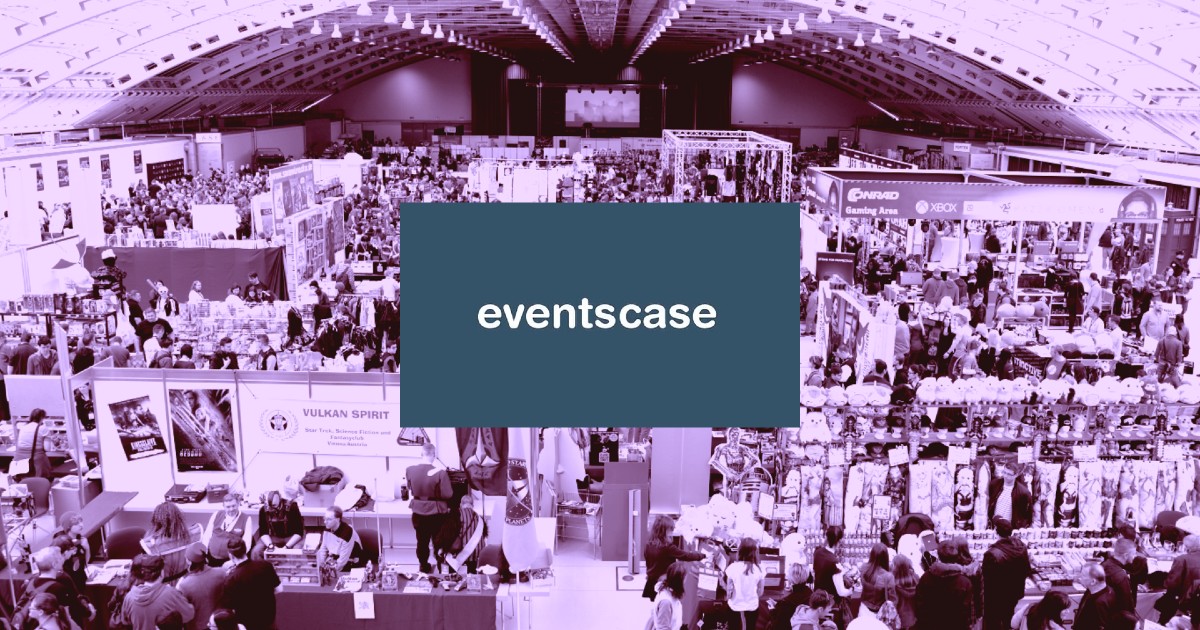What is event marketing? With a bit of luck, you’re not asking this question in the middle of an empty exhibition hall. Event marketing is the process of selling your conference, meeting, exhibition or training day to prospective attendees.
Unless you’re organising something really targeted and niche, your event will appeal to lots of different people. But it’s not always easy to do this. People have busy lives; there is only so much time they can spare. Plus, given the sheer amount of events that take place over a typical week, there’s likely to be something else on their radar.
What is event marketing? At face value, it answers some of the questions that attendees might have regarding your event, like:
- Why does this event matter?
- Why do I need to attend your event over anyone else’s?
- What can this event do for me?
Now let’s look at some of the ways of getting across to attendees.
What is event marketing? – The messaging
To market your event, you need to outline your core messaging. This could revolve around the type of event you’re running (“the world’s biggest conference for marketing professionals”), the numbers involved (“5,000 attendees, 200+ thought-leadership sessions, 500 exhibitors”), the speakers and activities you have lined up, or another important feature.
Invariably, this can represent a box-checking exercise. You’ll need to give your attendees a ‘what, where and when’, otherwise they’ll get a bit confused.
Still, you can be very tactical in the way that you present certain information. As well as basic details around your venue and date, be sure to include separating factors (i.e. why it’s the best, or only event of its kind) and the advantages for attendees (e.g. “enhance your knowledge”, “meet your next client”). What does your audience really want from you?
What is event marketing? – The channels
Once you have your messaging, it’s time to pick your methods of communicating it. Some of the best marketing channels for events include social media, display advertising, paid search, email marketing, and printed media.
A few years ago, we’d have advised sticking to a small pool of channels. For youthful events, that would mean promotion via Facebook and Instagram. Something more corporate would lend itself to printed media.
Given that so many events are trying to reach new audiences online, you should be open to different approaches. For example, if you can see that your industry’s biggest influencers have Instagram accounts with lists of relevant followers, you shouldn’t be overthinking whether your is event is ‘right’ for the channel; you should just be targeting them.
Marketing Platforms
EventsCase is an advocate of the multi-channel approach. Investing in lots of different activities will help you drive lots of different goals, allowing you to build awareness, engagement and, eventually, sales.
Here are some of the best platforms for marketing your event, complete with their role:
- Social networks – Mainly used for building awareness through paid and non-paid-for activity, you can also use social media to build engagement with existing attendees.
- Display advertising – Online banners can be judged on awareness when served to new prospects, and sales when driven by retargeted ads – served to people who have abandoned your website.
- Print media – Ads and editorial within printed resources are mainly used to drive awareness. However, you can use them to broadcast exclusive deals on tickets (e.g. “use the code ‘MYGREATEVENT10’ for 10% off passes”).
- Email marketing – For people that haven’t booked a ticket, your emails should be used for driving sales. For those that have, you’re looking to fuel engagement and knowledge around your event. Email requires a multi-tiered approach to measurement.
What is event marketing, and why is it important?
We’re now aware of how event marketing works and what it involves. But only you can act on this knowledge.
Marketing costs time, effort and money, which can put some people off. Our view is that every event needs a helping hand to reach its potential. By putting more of your budget into marketing, you can:
- Rise above the competition by speaking loudly, and more frequently, to your audience.
- Drive engagement with existing attendees, turning them into brand advocates and frequent visitors.
- Develop a voice for your event to demonstrate why it’s important.
- Build a brand that people recognise.
Marketing is about more than just selling tickets. It’s a way for you to build communities, fans and, as a result, a more valued event. By doing this, you can pave the way for long-term success.

